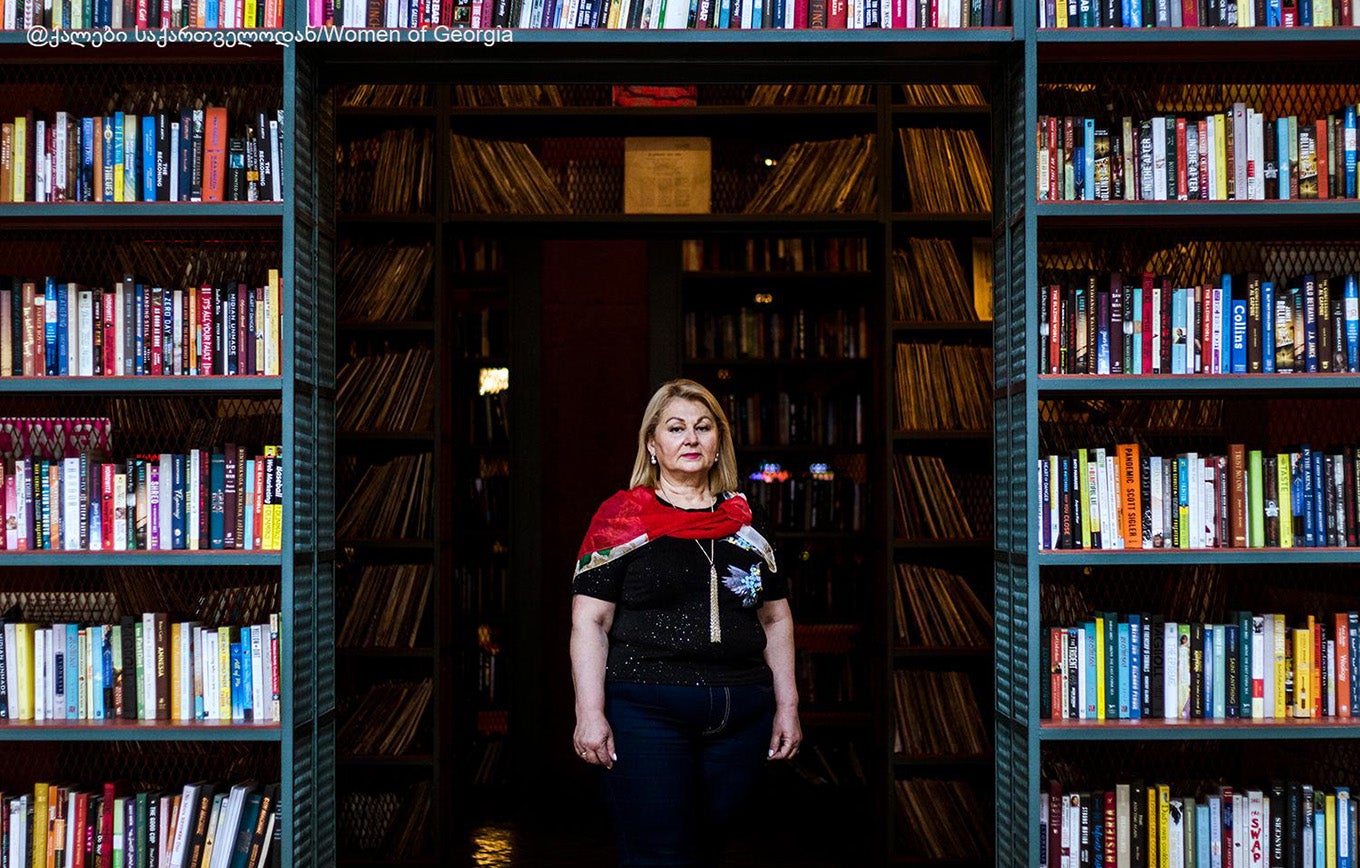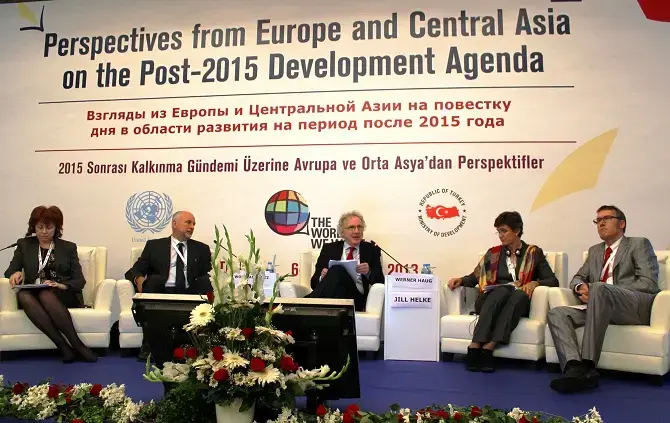TBILISI, Georgia — For almost 45 years, Aziko Sisvadze worked as a professor, teaching economics to students at various universities. Now retired at age 70, he still tries to keep up with the developments in his field, visiting a library several times a week to read new publications.
“I am as energetic as I was at the age of 30,” says Sisvadze. “I want very much to learn English and be able to read literature, search for information online and contact foreign colleagues in this language.”
A new initiative led by UNFPA Georgia, the “60+Club for Healthy and Active Living,” aims to help older citizens like Sisvadze keep learning new skills, share their knowledge with others and continue participating as full-fledged members of their communities. These membership-based clubs being introduced in cities around the country will provide space for socializing and enrichment activities as a way of supporting the implementation of an active ageing policy and improving the quality of life of Georgia’s elderly.
“There comes a time when people become less active in society due to their age, which has an undesirable impact on their life and mood,” says Meri Lobzhanidze, age 62, who lives in the city of Kutaisi in western Georgia. “If we can offer various activities to older citizens, taking their interests into consideration, it will help improve the quality of their lives and give them an opportunity to share their experiences with the youth.”

Meri Lobzhanidze, age 62, of Kutaisi. Photo: Salome Tsopurashvili
Lobzhanidze has long been engaged in the civic sector and says she plans to be very involved in the activities of the 60+Club that will be founded at the Imereti Youth Centre in Kutaisi, with the support of Kutaisi City Hall.
Kutaisi is one of the pilot municipalities, along with Tbilisi, Rustavi, Gori and Tsnori, for the project, which is also being supported by the Union of Tbilisi Multifunctional Libraries, the Georgian Association of the Elderly in Rustavi and the NGO Civic Initiative in Tsnori. The local municipalities are providing financial, material and human resources to ensure the sustainability of the 60+Clubs in their cities.
“Tbilisi City Hall expresses full support and readiness to join the initiative of the UNFPA Georgia Country Office and offer these clubs to the elderly residents of Tbilisi, where they will have an opportunity to receive various services for active and healthy ageing,” says Sophio Khuntsaria, the deputy mayor of Tbilisi. “As part of the pilot project, we plan to integrate these centres in two branches of the Union of Tbilisi Multifunctional Libraries starting from January 2020. Libraries already have a large number of elderly patrons, and this will benefit them a lot.”
The number of people aged 65 and older in Georgia is on the rise. In 2014, this group made up 14.3% of the total population, but is expected to grow to 19% by 2030, according to UN Population Division forecasts. By 2050, every fourth person (25.3%) in Georgia will be older than 65. Average life expectancy is also growing, according to the same data: by 2035, the average woman in Georgia will live 80.8 years while the average man will live to be 74.2.
Liana Charkviani, age 62, of Rustavi. Photo: Dina Oganova/UNFPA Georgia
“It is of utmost importance to create an environment where representatives of the older generation feel like full members of society,” says Lela Bakradze, head of the UNFPA Georgia Country Office. UNFPA sees the establishment and operation of the 60+Clubs as an important step towards boosting human capital in Georgia, thereby facilitating the process of attaining the Sustainable Development Goals.
“UNFPA Georgia has been advocating for an active and healthy ageing policy for years,” adds Bakradze. “We are happy that a circle has been created in which state institutions and NGOs are involved together with us in this effort. We hope that our joint initiative will change the life of generations.”
The 60+Clubs will offer a wide range of activities based on international standards and best practices for active ageing, including foreign language instruction, specialist-supervised medical physiotherapy exercises, computer classes, sports, art courses, workshops and culinary sessions. Club members will be able to gain new skills and knowledge, to share their own experiences and ideas with their peers and members of younger generations, to plan and arrange various events themselves, and get information about new developments in the world. By helping people maintain their physical and mental health into old age, the clubs aim to improve life quality and significantly reduce the risks of developing depression and other problems common amongst the elderly.
Liana Charkviani, age 62, says she is confident that there will be much interest in the 60+Club in Rustavi, where she lives and has been working as a coordinator at the Rustavi Centre for Civic Engagement for four years. “I had a desire to found a similar club myself, as I saw every day how people of my generation were experiencing a lack of communication and self-realization,” she says. “I have seen many times how the men in Rustavi and in other cities gather at the central square just to talk to one another. If there is a place with an interesting programme, computer access and newspapers or magazines, I do believe that many people will go there.”
A version of this story originally appeared on the UNFPA Georgia website.



